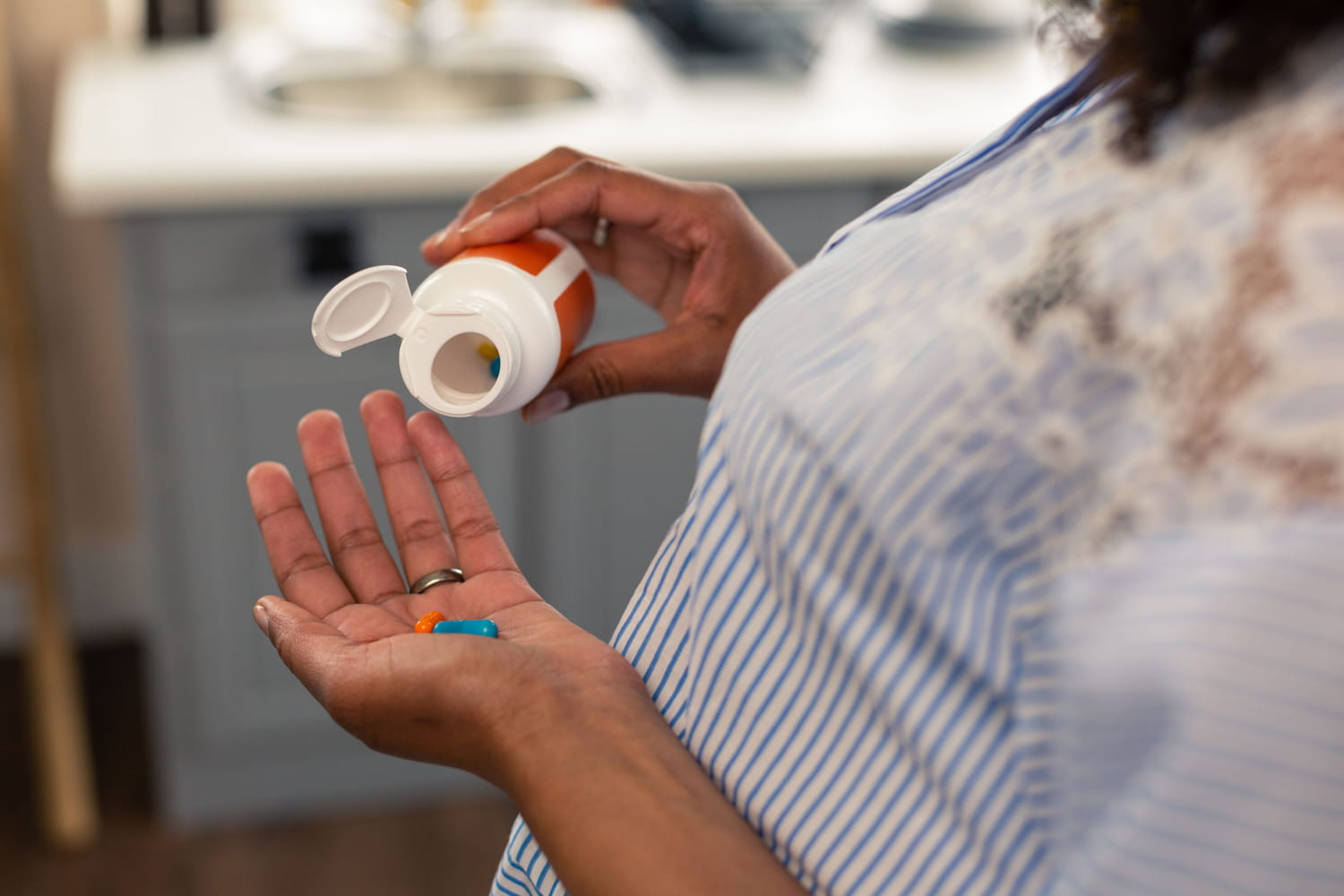The use of food supplements during pregnancy is not always justified. Which ones to choose and what precautions to take? What to think of “special pregnancy” vitamin cocktails? The point with Dr. Isabelle Héron, medical gynecologist.
In a notice published on June 7, 2017, ANSES alerted to Risks of the multiplication of vitamin and mineral sources In the absence of needs established during pregnancy. This then reminded pregnant women “ do not consume food supplements without the advice of a health professional And recommended them to report to their doctor, pharmacist or midwife taking any product (drug or food supplement), whether prescribed or taken in self-medication “. Cases of neonatal hypercalcemia linked to vitamin D and congenital hypothyroidism because of iodine had notably been reported. ANSES also attracted the attention of health professionals Do not combine the sources of vitamins and minerals without regular biological monitoring.
Folic acid, an essential food supplement during pregnancy
In preconception, folic acid (vitamin B9) is the only vitamin that is really recommended by learned companies. “”It is a very important vitamin because it enters what is called the synthesis of DNA. Consequently, folic acid deficits generate anomalies of closing the neural tube which will then lead to malformations in the fetus of the Spina Bifida type or labio-palatin slots“Explains Dr. Isabelle Héron, medical gynecologist and president of the National Federation of Medical Gynecology Colleges (FNCGM). All young women who stop their contraception for a pregnancy project are prescribed folic acid At the rate of 0.4 mg per day until the third month of pregnancy included, overall to the ultrasound of the 12 weeks. “”As organogenesis takes place in the first trimester of pregnancy, it is important to take folic acid in preconception so that one is fully effective“She continues.
What are the food supplements authorized during pregnancy?
All “special pregnancy” dietary supplements are authorized, provided you have discussed it beforehand with your doctor to avoid any risk of overdose Or duplicate that could be dangerous. There are specific food supplements for pregnancy which contain all the vitamins and trace elements that the pregnant woman needs (Gynefam pregnancy, gestarelle, oligobs, maternalix For example), namely folic acid, iron, iodine, group B vitamins (B1, B2, B3, B5, B6, B8, B12), vitamin D, magnesium, zinc, copper. “”These food supplements are extremely complete and different from those that can be taken outside pregnancy because they are made in recommended doses during pregnancy. They correspond to the daily quantities required for a woman who has no obvious deficiencies“, Specifies the gynecologist. Good to know, A vitamin D bulb is systematically administered in the third trimester of pregnancy.
In what cases in which to take food supplements during pregnancy?
“”Apart from the folic acid which is recommended for all pregnant women, food supplements during pregnancy are not recommended (See the big book of my pregnancy, CNGOF). Normally, a properly balanced diet, without any restriction, is enough to cover the nutritional needs of the pregnant woman“, Indicates Dr. Isabelle Héron. But, at present, more and more women are following a Exclusion diet of certain foods (Vegetarian, vegan, gluten-free, etc.) which causes deficiencies to certain vitamins, minerals and trace elements. “”“Special pregnancy” food supplements are therefore interesting, even essential, in these cases but also In case of close pregnanciesbecause in their composition, they correspond to the contributions recommended during pregnancy. In certain situations, we may have to do vitamin dosages to supplement them to the optimal dose. They are not reimbursed, unless it is folic acid or iron (Tardyferon, Timoferol) prescribed independently “Continues the specialist.
Food supplements during pregnancy and nausea
Food supplements during pregnancy are not contraindicated in the presence of nausea and vomiting important. “Food supplements are interesting during pregnancy but any self -medication is to be avoided. We must always refer to a healthcare professional,” recalls Dr. Isabelle Héron.








